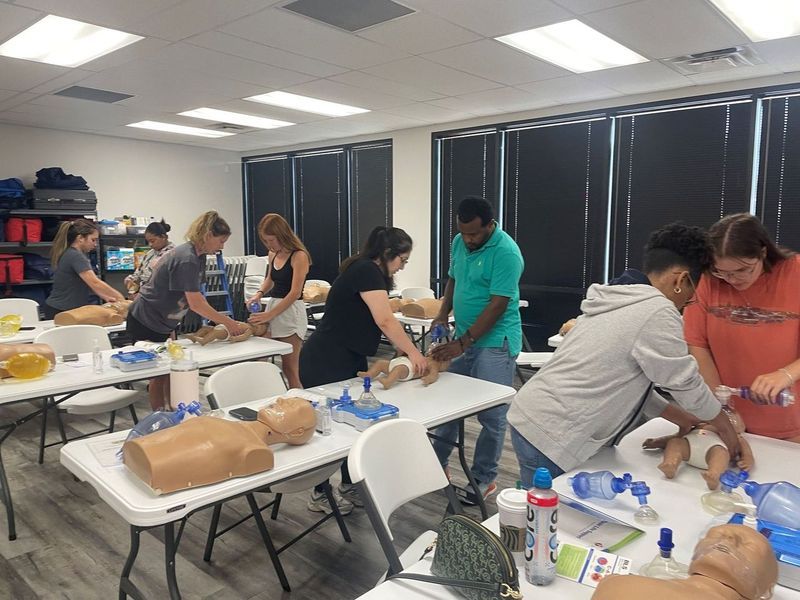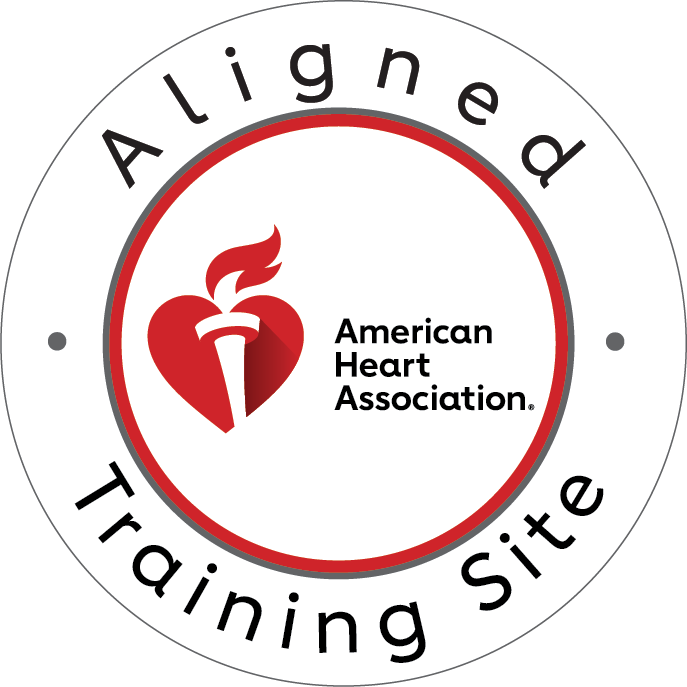When cardiac emergencies strike, every second counts. However, technical CPR skills alone aren’t enough to ensure the best possible outcomes. Communication skills matter in CPR situations just as much as proper chest compressions and rescue breathing. Effective communication can mean the difference between a coordinated life-saving response and dangerous confusion that costs precious time.
The Critical Role of Communication Skills in CPR Emergencies
Communication skills matter in CPR because emergencies naturally create chaos and panic. Without clear, confident communication, even the most skilled responders can find themselves working against each other rather than as a unified team. Moreover, effective communication ensures that bystanders remain calm, emergency services receive accurate information, and the victim receives the best possible care.
During a cardiac arrest, multiple tasks must happen simultaneously. Someone needs to call 911, another person should begin chest compressions, and a third might need to locate an AED. Furthermore, bystanders need direction, and family members require reassurance. This complex scenario demonstrates why communication skills matter in CPR situations beyond the basic life support techniques.
Essential Communication Skills That Matter in CPR Scenarios
Clear and Direct Instructions
The ability to give clear, direct instructions is fundamental when communication skills matter in CPR emergencies. Responders must speak loudly and confidently, using simple language that anyone can understand. For example, saying “You in the red shirt, call 911 now” is far more effective than asking “Can someone please call for help?”
Additionally, instructions should be specific and actionable. Rather than saying “Help me,” effective communicators say, “Take over compressions when I count to 30.” This specificity eliminates confusion and ensures seamless transitions between team members.
Active Listening and Feedback
Communication skills matter in CPR because they involve both speaking and listening effectively. Responders must listen for important information from bystanders, such as how long the victim has been unconscious or any known medical conditions. Similarly, they need to hear feedback from team members about pulse checks or AED readings.
Active listening also means acknowledging when others speak and confirming understanding. This two-way communication prevents mistakes and ensures everyone stays informed about the victim’s condition and response to treatment.
Managing Emotional Responses
Perhaps most importantly, communication skills matter in CPR situations because they help manage the emotional chaos that surrounds medical emergencies. Family members may be screaming, bystanders might be offering unhelpful advice, and even trained responders can feel overwhelmed.
Effective communicators remain calm and speak in reassuring tones while maintaining authority. They acknowledge people’s concerns without allowing emotions to derail the rescue effort. This emotional management is just as crucial as the physical aspects of CPR.
How Communication Skills Matter in CPR Team Coordination
Establishing Leadership
When multiple people respond to a cardiac emergency, communication skills matter in CPR leadership roles become immediately apparent. Someone must take charge and coordinate the response. The person with the strongest communication skills often naturally assumes this leadership role, regardless of their medical training level.
Effective leaders use communication to quickly assess available resources, assign specific roles, and maintain oversight of the entire situation. They delegate tasks based on people’s abilities and ensure no critical steps are overlooked.
Preventing Dangerous Miscommunication
Poor communication during CPR can lead to dangerous situations. For instance, if team members don’t communicate clearly about when to stop compressions for pulse checks, someone might continue compressions while another person tries to assess circulation. This miscommunication wastes valuable time and can interfere with proper assessment.
Communication skills matter in CPR because they prevent these dangerous overlaps and ensure smooth transitions between different phases of resuscitation. Clear verbal counts, status updates, and role confirmations keep everyone synchronized.
The Impact of Communication Skills on CPR Success Rates
Research consistently shows that communication skills matter in CPR outcomes. Teams that communicate effectively have higher success rates in resuscitation efforts. This improved performance stems from several factors that highlight why communication skills matter in CPR scenarios.
First, effective communication reduces response time. When team members can quickly organize and assign roles, CPR begins sooner and proceeds more efficiently. Second, clear communication minimizes errors that can occur when people misunderstand instructions or work at cross purposes.
Additionally, communication skills matter in CPR situations because they improve the quality of compressions and rescue breathing. Teams that communicate well can provide more consistent compressions, maintain proper compression-to-ventilation ratios, and ensure adequate chest recoil between compressions.
Training Communication Skills That Matter in CPR Situations
Practice Scenarios and Role-Playing
Understanding why communication skills matter in CPR is only the first step. These skills must be practiced regularly through realistic scenarios. Training programs should include role-playing exercises where participants practice giving clear instructions, managing emotional bystanders, and coordinating team responses.
Effective training scenarios recreate the stress and confusion of real emergencies. This practice helps responders develop the confidence needed to communicate effectively when adrenaline is high and stakes are critical.
Building Confidence Through Repetition
Communication skills matter in CPR because confidence directly impacts effectiveness. Responders who feel uncertain about their communication abilities may hesitate to take leadership roles or give clear directions. Regular practice builds the confidence necessary for effective emergency communication.
Training should emphasize that communication skills matter in CPR just as much as technical skills. Participants need to understand that their ability to coordinate a response can be just as life-saving as their ability to perform chest compressions.
Real-World Applications: When Communication Skills Matter in CPR
Workplace Emergencies
In office settings, communication skills matter in CPR situations because most bystanders have little to no medical training. The person leading the response must be able to quickly organize untrained volunteers, give simple instructions, and maintain calm while directing the emergency response.
Workplace scenarios often involve additional challenges, such as notifying management, clearing areas for emergency responders, and communicating with family members. These complex situations demonstrate why communication skills matter in CPR beyond the immediate medical response.
Public Space Incidents
When cardiac arrests occur in public spaces, communication skills matter in CPR responses become even more critical. Large crowds can create chaos, multiple people may try to help simultaneously, and language barriers might complicate communication.
Effective communicators can quickly establish order, identify the most qualified helpers, and manage crowd control while maintaining focus on the victim’s needs. This crowd management aspect shows another way that communication skills matter in CPR situations.
Technology and Communication Skills in Modern CPR
AED Integration and Communication
Modern AEDs provide voice prompts and visual instructions, but communication skills matter in CPR situations even with these technological aids. Responders must still coordinate the use of AEDs with ongoing CPR efforts, communicate with the device operator, and ensure bystander safety during shock delivery.
Furthermore, communication skills matter in CPR scenarios involving AEDs because someone needs to clearly announce “Clear!” before shock delivery and confirm that all team members have moved away from the victim.
Emergency Services Communication
Communication skills matter in CPR because responders must provide clear, accurate information to emergency dispatchers and incoming paramedics. This communication includes the victim’s condition, interventions already performed, and any changes in the victim’s response.
Effective communicators can quickly brief arriving professionals, allowing for seamless transition to advanced life support without interrupting ongoing resuscitation efforts.
Take Action: Develop Your Communication Skills for CPR Excellence
Understanding why communication skills matter in CPR is just the beginning of your journey toward becoming an effective emergency responder. The next step is developing these crucial skills through comprehensive training that combines technical CPR knowledge with practical communication strategies.
CPR Indianapolis offers expert CPR certification Indianapolis and BLS certification Indianapolis programs that emphasize both technical proficiency and effective communication skills. As an American Heart Association training site, CPR Indianapolis provides initial certifications and renewals in BLS for Healthcare Providers, ACLS, PALS, and CPR and First Aid courses.
All classes at CPR Indianapolis are stress-free and hands-on, allowing you to practice communication skills in realistic scenarios. Don’t wait for an emergency to discover the importance of effective communication during CPR. Contact CPR Indianapolis today to schedule your certification and learn why they’re recognized as the best CPR training in Indianapolis.
Remember, when communication skills matter in CPR situations, proper training makes all the difference. Invest in comprehensive certification that prepares you for real-world emergencies where lives depend on both your technical skills and your ability to communicate effectively under pressure.





